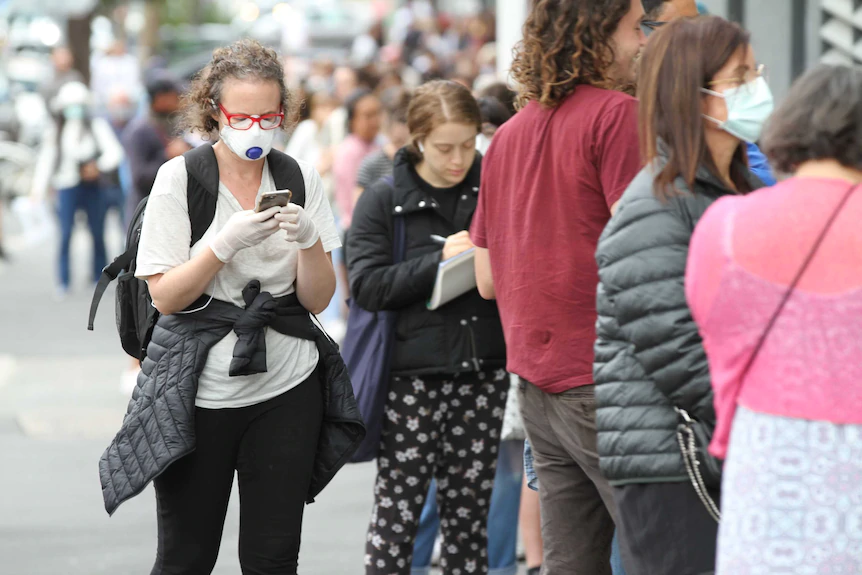Politics
Bored of COVID-19 Australians and British people bought Christmas to play early causing ‘out of stock’
Christmas tree farms in Australia and the UK closed early this year due to a “sold out” situation as eager consumers flocked to buy decorative pine after a depressed year due to the COVID-19 pandemic.
Bored of COVID-19 Australians and British people bought Christmas to play early causing ‘out of stock’
According to Reuters news agency, Australian consumers this year are no longer interested in plastic Christmas trees and are looking for real trees to decorate their homes.
“People have had a rough year and they want to celebrate Christmas earlier this year,” said William Cappello, owner of Willy’s Christmas ranch in Sydney.
Since it takes four years to grow a 2.5 meter tall pine tree, pine sellers struggle with this sudden demand and can only warn customers when supplies start to run low.
William’s farm will close early for the first time since 2001 after selling out all its trees. At another farm in Sydney’s west, owner Lynette Keanelly says all the trees are sold out and now she can only take pre-orders for Christmas 2021.
“2020 is a bad year for everyone. It’s nice to try something nice and there’s nothing better than Christmas” – Ms. Sharon, one of the last customers to buy pine at Willy’s, speak.
Australia is not the only country experiencing this. According to the BBC, although pine tree shops had to close to avoid the epidemic, sellers across the UK said this year’s holiday season they had a good deal.
Pete Hyde sets up a tree stand every year in the center of Dorchester. As of early December 2020, he has sold 30% more than in previous years.
“This year, more than ever, people definitely want to have a great holiday. They buy their pine trees earlier and are willing to spend a lot of money. A lot of customers say this is the first time they’ve bought a real pine tree. “, said Pete.
Farms in the UK typically sell around 8 million pine trees a year. This year, they predict that number will hit 10 million. Pine growers reported that the wholesale supply to retail stores was 24% higher than in the same period last year.
The reason may be because many people take advantage of ordering pine trees earlier than usual when they are limited to shopping. Some other reasons such as fewer people going abroad than before, so many people stay in their hometown to celebrate Christmas. Small gatherings that take place more often than family gatherings require the purchase of many pine trees and turkeys.
Christmas in the year of COVID and the fear of Santa Claus being ‘super contagious’
According to the New York Post on December 14, a Santa Claus in the city of Mol, Belgium, when bringing joy to a nursing home, brought along the COVID-19 disease without knowing it.
This “super contagious” Santa is said to have infected 75 people, including 61 elderly people and 14 staff members of the institute.
One of them died, the other had severe symptoms and needed oxygen support. Most of the remaining patients remain asymptomatic, just like Santa himself visiting them.
This Santa impersonator is the son of someone from a nursing home. At the time of his visit, he felt in good health. But this activity did not clearly inform the institute’s crisis center.
“It was done with a noble purpose, but it went wrong. It was the darkest day of the nursing home,” said Mol mayor Wim Caeyers.
Initially, the staff confirmed that Santa Claus as well as those in contact were wearing masks and following safety guidelines. However, photos of the greeting scene show that this is not the case.
Another incident happened in the state of Georgia, USA over the weekend. Two Santas were found to be positive for COVID-19 after participating in the annual carnival parade. There were at least 50 children taking pictures with them, so they became F1.
Similar to the infection in Belgium, both grandparents showed no symptoms when attending the event.
Is meeting a good idea?
Recently, the UK has announced the rules on meeting during Christmas, allowing up to 3 families to gather at the same time on this occasion, applied from December 23 to 27.
According to BBC, after this regulation was announced, many people were very excited. However, over the weekend, the leaders of Britain’s National Health Service warned people to think very carefully about the risks of infection.
Many experts have described allowing households to gather as a “mistake”, especially as several areas of the UK have recorded record rates of disease. Their warning could be interpreted as something like: Don’t hug your grandmother for Christmas and then bury her in January.
Another risk on Christmas is that people and students are at risk of infection when traveling by train or car for many hours to visit family and then infect their relatives, especially elderly members with weak health. in the family.
Some people choose not to go home until the situation allows, but the number of people who are homesick and defiant remains a risky unknown ahead of Christmas and the New Year. The US and European countries are facing a “horror” holiday season that could lead to the next wave of COVID-19.
A big question for these countries: Is Christmas 2020 worth the trade-off?
You can click on the image below to owning our products
Connect us at:
Homepage: Fullprintingteeshirt Store












